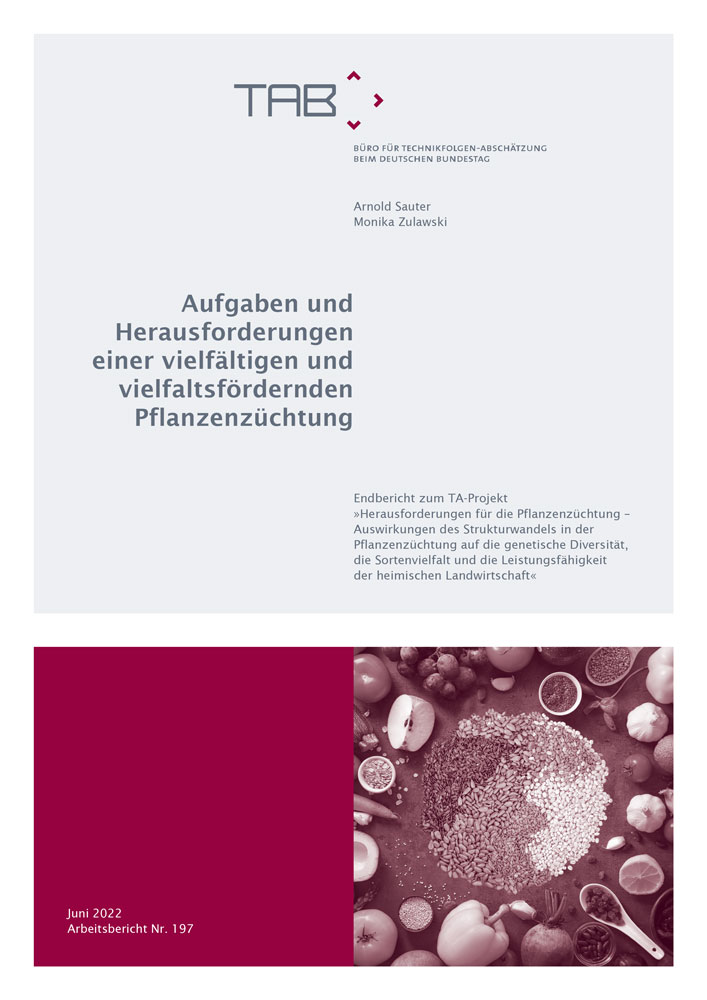Plant breeding as a central element of a sustainable and future-oriented agriculture
Plant breeding is a central element of sustainable agriculture fit for the future. Both for reasons of future provision and in terms of research and innovation policy, the promotion of plant breeding and breeding research is considered an important public task.
However, according to TAB's assessment, the importance of plant breeding, agrobiodiversity and agriculture as a whole is not adequately reflected in the public debate, even though in recent years the issue of the climate relevance of agriculture, the problem of the decline in biodiversity and - in view of the coronavirus pandemic - the social importance of safe food production and supply have been problematised and discussed more than before. The organisation of an intensive societal discourse on the goals and ways of sustainable agriculture still appears to be an important political task for the coming years.
An overall concept for a future-oriented, sustainable agricultural and food system would be an important prerequisite for plant breeding, as a sector upstream of agriculture, to make the best possible contribution to solving these future tasks. The topic or objective of diversity-based and diversity-oriented plant breeding seems particularly suitable for a constructive, integrative dialogue of understanding and for avoiding or overcoming the trench warfare that still dominates in topics that are otherwise particularly relevant for plant breeding, such as genetically modified plants and plant protection products.
The TAB report (TAB-Arbeitsbericht Nr. 197, only in German) provides information on the objectives and methods of plant breeding as well as the national and international legal regulations for variety and patent protection, seed authorisation and access to global genetic resources. Starting with a description of the global and European seed market, the private, public and non-profit actors in German plant breeding and their business models are presented. A special focus is placed on the situation and development trends of biodiversity in German agriculture with regard to production systems, crop species as well as variety diversity including genetic diversity. Possibilities for promoting agrobiodiversity are characterised, as well as challenges for (German) plant breeding resulting from current scientific and technological developments, influences of changes in demand, environmental and energy policy, and the legal framework for the use and protection of genetic resources and plant varieties. Political and societal options for action to strengthen diverse plant breeding that promotes diversity are derived from this.
An overview of the contents of the report chapters can be found on the project page, a detailed summary precedes the final report.
25.01.2023
Download and further information
- TAB-Arbeitsbericht Nr. 197 (only in German)
Aufgaben und Herausforderungen einer vielfältigen und vielfaltsfördernden Pflanzenzüchtung. Endbericht zum TA-Projekt »Herausforderungen für die Pflanzenzüchtung – Auswirkungen des Strukturwandels in der Pflanzenzüchtung auf die genetische Diversität, die Sortenvielfalt und die Leistungsfähigkeit der heimischen Landwirtschaft« (PDF)
doi:10.5445/IR/1000155032 - Project page: Challenges for plant breeding. Impact of the structural change in plant breeding on genetic diversity, diversity of varieties and performance of domestic agriculture

